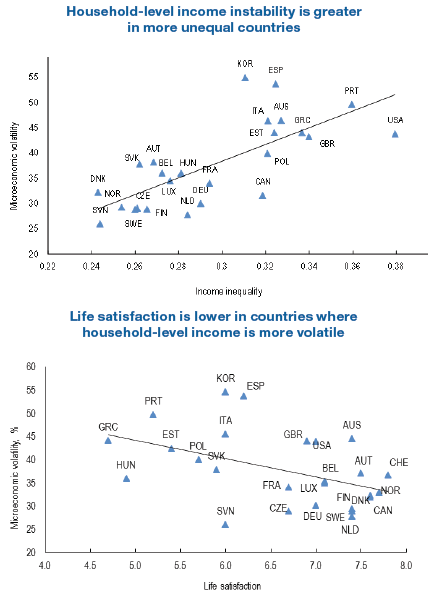Marché du travail, capital humain et inégalités
Do pro-growth policies generate economic instability for households?
|
Main Paper: Effects of Pro-Growth Policies on the Economic Stability of Firms, Workers and Households Policy Note: Do Policies that Boost Aggregate Growth Generate Economic Instability for Individual Households Policy Brief (two pager): Pro-growth reforms: their impact on income inequality and household economic vulnerability Related working papers: Cournède, B., P. Garda and V. Ziemann (2015), "Effects of Economic Policies on Microeconomic Stability", OECD Economics Department Working Papers, No. 1201, OECD Publishing, Paris. Garda, P. and V. Ziemann (2014), "Economic Policies and Microeconomic Stability: A Literature Review and Some Empirics", OECD Economics Department Working Papers, No. 1115, OECD Publishing, Paris. |
|
People obviously care about how much they earn, but they also care about the stability of their employment and wages. Being vulnerable to losing one’s job or losing income harms wellbeing. People report lower levels of satisfaction with life in countries where their income after paying taxes and receiving transfers is more unstable.
Households’ vulnerability to income volatility is generally greater in more unequal countries. Greater income inequality is also associated with lower levels of life satisfaction. The welfare effects of income instability and inequality thus often compound each other. Income inequality has been steadily widening in most OECD countries during the past decades. According to a traditional measure, the Gini coef cient, income inequality has risen by 3 percentage points on average across countries from the mid-1980s to the late 2000s. Furthermore, the ratio of the top-to-bottom income decile, another conventional metric, reached a three-decade high in 2010. |
|
Documents connexes
